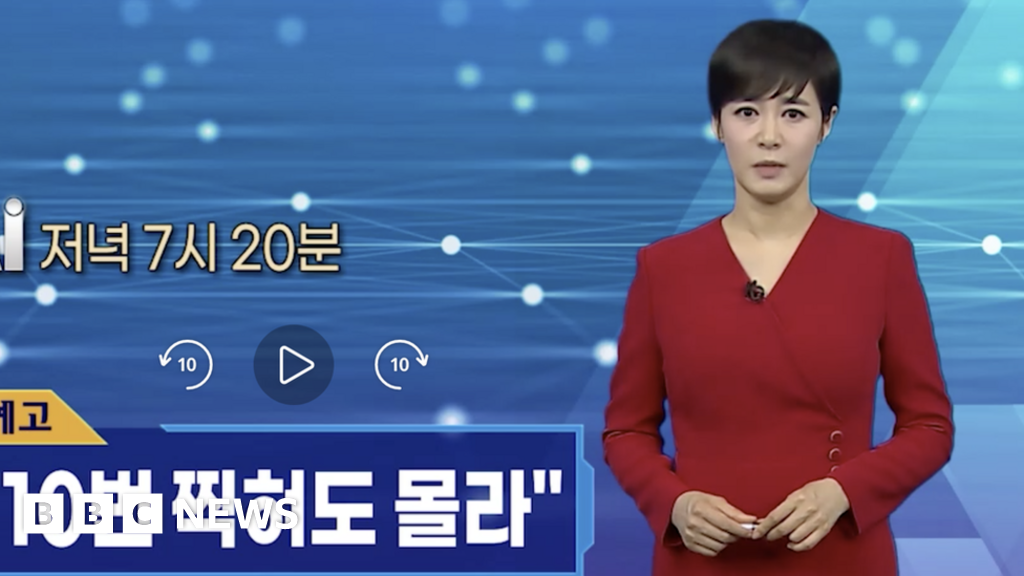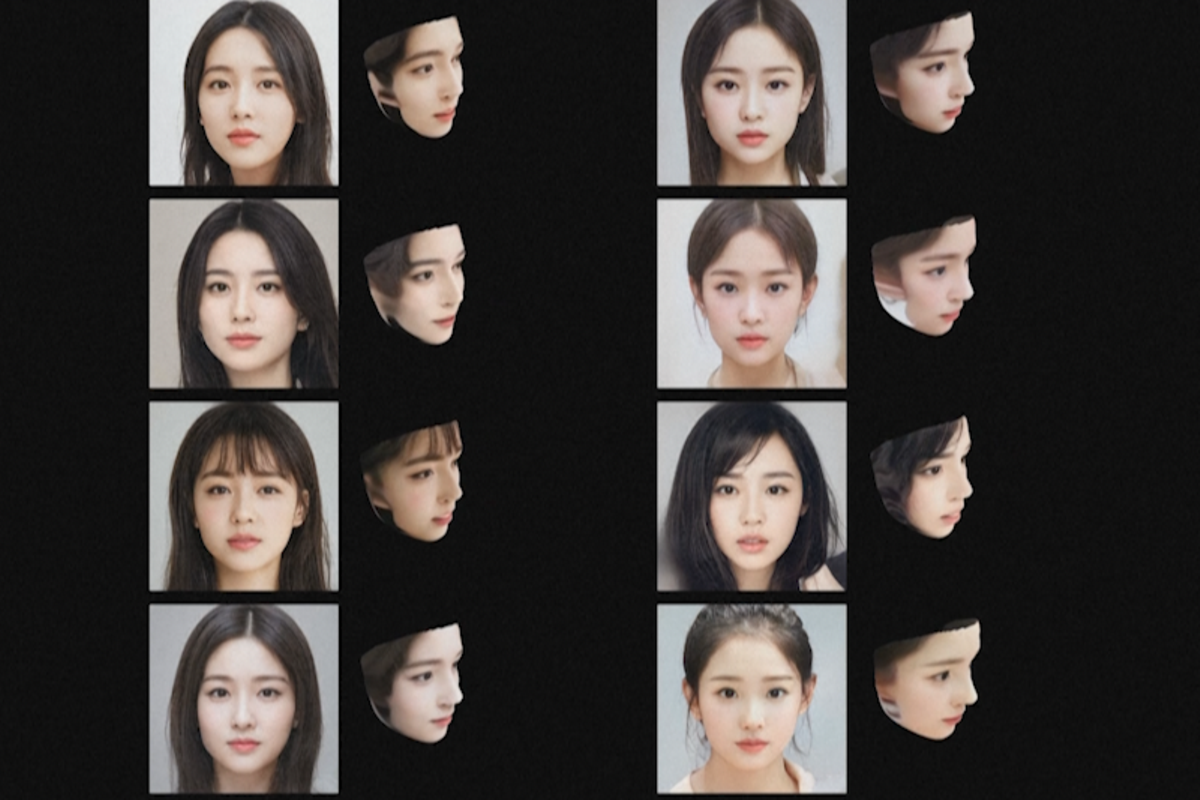K-Pop Deepfake Scandal: What Real Stans Need To Know & Where To Find Info
Are you aware of the dark underbelly of the K-Pop world, where AI technology is being exploited to create and disseminate explicit content featuring beloved idols? The proliferation of "deepfake" videos, which manipulate reality with alarming accuracy, has sparked outrage and raised serious ethical and legal questions, threatening the well-being of the very stars fans adore.
The digital age has ushered in unprecedented opportunities for creativity and connection, but it has also opened the door to new forms of exploitation. Deepfakes, videos created using artificial intelligence to convincingly superimpose one person's likeness onto another's body, are rapidly becoming a scourge of the internet. These manipulated videos, often pornographic in nature, are primarily targeting female K-Pop idols, causing immense distress and damage to their reputations and mental health. The technology's deceptive nature and the ease with which it can be disseminated online make it a particularly insidious threat, one that requires urgent attention and a multifaceted approach to combat.
In a recent development, thirteen individuals were formally detained and referred to prosecutors for their involvement in the creation and distribution of these illicit deepfakes. Furthermore, the police have booked around sixty participants in chat rooms where such content was shared and discussed. These actions are a testament to the growing recognition of the severity of the problem and the determination of authorities to hold those responsible accountable. However, the scope of the issue extends far beyond these arrests, with countless videos circulating online and a vast network of individuals involved in their creation, sharing, and consumption. The challenge lies not only in identifying and punishing the perpetrators but also in preventing the creation and spread of new deepfakes and protecting the victims from further harm.
- Try Undress Ai Free Today Remove Clothes With Ai
- Where To Watch Alternatives Your Guide To Vega Vegamoviesist
On August 30, 2024, in Seoul, South Korea, activists took to the streets to protest against deepfake porn. Wearing eye masks, they held posters that read, "Repeated deepfake sex crimes, the state is an accomplice too." The protest highlighted the growing public awareness and concern surrounding the issue. The demonstrators voiced their anger at the creators and distributors of deepfakes, as well as the platforms that host the content and the government's perceived inaction in addressing the problem. The protestors sought to draw attention to the emotional, psychological, and reputational damage inflicted upon the targeted idols, demanding stricter regulations and greater protection for the victims. The demonstration was a poignant reminder that this is not just a technological or legal issue, but a human one, demanding empathy, accountability, and decisive action.
The first appearance of deepfakes was in 2017, it quickly became a hot topic in the tech world. It didn't take long for these manipulated videos to find their way onto pornographic websites, often with sensational headlines designed to attract viewers. The ease with which these videos can be created and the potential for virality has made them a lucrative and increasingly prevalent form of online content. The use of AI to generate realistic images and videos has blurred the lines between reality and fiction, making it difficult for viewers to distinguish between genuine content and manipulated material. This has led to a rise in the creation and spread of deepfakes, and with it, the potential for widespread harm.
The prevalence of deepfakes has also brought to light the ethical considerations involved in the use of AI. As technology advances, so does the potential for abuse. Deepfakes pose a significant threat to individuals' privacy, reputations, and even their safety. The creation and distribution of these videos without the subject's consent is a clear violation of their rights, and the potential for misuse extends far beyond the realm of entertainment. Deepfakes can be used to spread misinformation, damage political opponents, or even commit fraud. The development of AI technology needs to be accompanied by strong ethical guidelines and regulations to prevent its misuse and protect individuals from harm.
Numerous platforms and websites are reported to be hosting deepfake content. Some of these platforms are specifically dedicated to the distribution of such videos, while others may inadvertently host them or fail to adequately monitor their content. These platforms are often based outside of legal jurisdictions, making it difficult for authorities to take action against them. The anonymity afforded by the internet also allows creators and distributors of deepfakes to operate with relative impunity. The spread of deepfakes raises questions about the responsibility of online platforms to regulate the content they host and the need for international cooperation to combat the problem.
The impact on the targeted K-Pop idols has been devastating. The videos can cause immense emotional distress, leading to anxiety, depression, and even suicidal thoughts. The idols' reputations are often tarnished, and their careers may be jeopardized. The public nature of the content can also lead to harassment and cyberstalking, further exacerbating the harm. The idols face a constant struggle to protect their image and maintain their privacy. Legal measures are often complex and time-consuming, and the perpetrators may never be brought to justice. The deepfake phenomenon highlights the vulnerabilities of public figures in the digital age and the need for greater protections for their privacy and well-being.
Agencies representing K-Pop groups have begun to take legal action against the creators and distributors of deepfakes. In June, the agency representing the girl group NewJeans, ADOR, warned of legal measures. The actions taken by these agencies demonstrate their commitment to protecting their artists from harm. However, the sheer volume of deepfake content online makes it challenging to address the problem effectively. The agencies may face challenges in identifying the perpetrators, gathering evidence, and pursuing legal action across international borders. The legal process can be lengthy and expensive, and it may not always result in the desired outcome. A comprehensive response is needed, involving legal, technological, and social measures, to effectively address the problem.
Here is a table summarizing the key facts:
| Issue | Details |
|---|---|
| Deepfakes | AI-generated videos that manipulate the likeness of individuals, often for malicious purposes. |
| Target Audience | Primarily female K-Pop idols. |
| Nature of Content | Pornographic and explicit. |
| Legal Actions | Thirteen individuals formally detained, and approximately 60 participants in chat rooms booked. Agencies representing K-Pop groups are taking legal action. |
| Impact | Emotional distress, reputational damage, career jeopardization, harassment, and cyberstalking for idols. |
| Public Response | Protests and growing public awareness. |
| Key Websites Involved | Adultdeepfakes, porndeepfake.net, and erome. |
| Date of Protest | August 30, 2024. |
| Location of Protest | Seoul, South Korea. |
| Agency's Warning | NewJeans' agency, ADOR, warned of legal measures in June. |
Websites like adultdeepfakes and porndeepfake.net are mentioned in the content, these websites are known to host deepfake K-Pop content. Erome, another platform, is used for sharing erotic photos and videos, and has been associated with such content. Some websites are created by K-Pop lovers, who on one hand claim to respect their idols but on the other hand, they are involved in the distribution of deepfake porn.
The rapid development of AI technology and the resulting challenges and ethical dilemmas has made it a hot topic. Some headlines include phrases like "\ud83d\udc69\u200d\ud83c\udfa4\ud83d\udc78 watch the best free kpop deepfake ai porn". Websites offer deepfake content featuring idols like Twice, Blackpink, and other groups. Alldeepfake is another source for these types of videos, they also have deepfake porn of Hollywood celebrities, singers, Chinese and J-Pop stars.
The use of deepfakes raises serious questions about consent, privacy, and the exploitation of individuals. The production and distribution of these videos without the consent of the people depicted is a violation of their rights and can have serious legal and social consequences. The deepfake phenomenon highlights the need for a comprehensive approach to address the problem, involving technological solutions, legal frameworks, and social awareness campaigns.
The issue of deepfakes extends beyond entertainment and raises critical questions about the intersection of technology, ethics, and society. The ability to create realistic but fabricated videos has the potential to undermine trust in media, politics, and even personal relationships. Addressing the deepfake problem requires a multi-pronged approach, including stricter laws, improved content moderation, and public education about the risks and harms of this technology.
The situation is constantly evolving, and new deepfakes are constantly created and shared. This creates an ongoing cycle of harm that requires continuous vigilance. The challenge lies not only in identifying and removing existing content but also in preventing the creation and spread of future deepfakes. This involves a combination of technical solutions, legal frameworks, and public awareness campaigns. The ultimate goal should be to create a safer online environment where individuals can express themselves freely without fear of exploitation or harm.
Article Recommendations
- Trending Now Latest Telugu Releases More Refer Earn Gold
- Latest Updates Movierulz Movie News Reviews



Detail Author:
- Name : Prof. Evans Skiles I
- Username : iliana.rempel
- Email : mosciski.jeanne@turcotte.net
- Birthdate : 2006-07-19
- Address : 276 Janiya Stream Suite 213 Lisamouth, NM 75625-5198
- Phone : (253) 787-8111
- Company : Erdman Ltd
- Job : Manager of Air Crew
- Bio : Id praesentium ea voluptas. Commodi laudantium mollitia est eum molestias. Aut beatae quia sequi et provident totam. Maxime suscipit et quod laudantium.
Socials
tiktok:
- url : https://tiktok.com/@mcclure1995
- username : mcclure1995
- bio : Et amet error est. Qui non delectus perspiciatis eligendi.
- followers : 3928
- following : 2836
twitter:
- url : https://twitter.com/aracely6248
- username : aracely6248
- bio : Molestiae sit veniam doloremque voluptatibus aut. Eum ducimus temporibus quia. At ipsam sit eius quo. Atque molestiae in voluptatem aut repellat deleniti.
- followers : 6800
- following : 2214
linkedin:
- url : https://linkedin.com/in/aracelymcclure
- username : aracelymcclure
- bio : Corporis in enim illum consequatur.
- followers : 6876
- following : 1062
instagram:
- url : https://instagram.com/aracelymcclure
- username : aracelymcclure
- bio : Ex explicabo dolore doloribus aliquam rerum corrupti. Cupiditate sit non eum nihil odio magnam.
- followers : 6318
- following : 1281